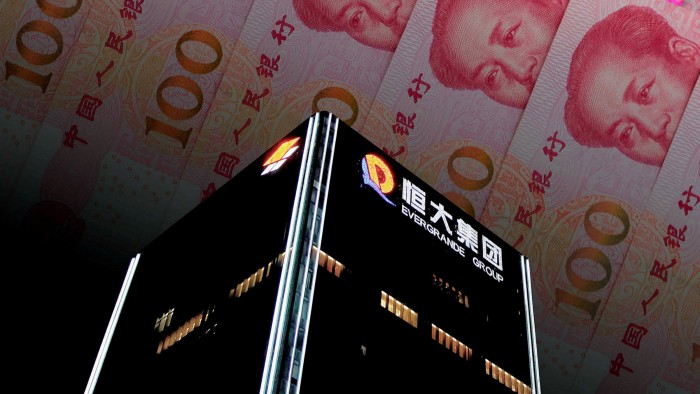GPIF blames weaknesses in China bond market for index move

Roula Khalaf, Editor of the FT, selects her favourite stories in this weekly newsletter.
Japan’s ¥193.3tn ($1.7tn) Government Pension Investment Fund has blamed poor liquidity and futures trading options, and lack of international settlement for last month’s decision to exclude renminbi-denominated Chinese sovereign bonds from its portfolio.
The GPIF was forced into making a decision after FTSE Russell announced in March that it would begin phasing Chinese debt into its flagship World Government Bond Index.
The gradual inclusion process, which kicked off on October 29, will last a period of three years before Chinese government bonds comprise a total of 5.25 per cent of the index, which is tracked by up to $3tn in assets.
The GPIF is one of the biggest users of the WGBI and Japanese investors are thought to represent as much as 80 per cent of funds pegged to the index.

This article was previously published by Ignites Asia, a title owned by the FT Group.
“Regarding liquidity, we make decisions based on the size of our investment, which is generally much larger than other investors,” the GPIF said.
Calculations based on the pension fund’s 2020 fiscal report reveal that roughly ¥24.2tn, or 67.2 per cent of the pension fund’s passive foreign bonds investments, are benchmarked to the WGBI and WGBI-O, a version of the WGBI that also excludes eurozone government bonds.
Had it stayed invested it would have meant that once FTSE Russell completed its inclusion process for Chinese government bonds, the GPIF’s exposure to these debts would have amounted to ¥1.27tn, or roughly $11.2bn.
The lack of futures trading was also an issue. During portfolio rebalancing, it would be better for foreign investors to be able to track the WGBI and execute trades with minimal market impact by using futures, GPIF said.
“There is currently no other country that comprises more than 5 per cent of the WGBI index, in which futures trading by foreign investors is prohibited,” the pension fund said.
A third reason cited by the GPIF is the different settlement systems between international bonds and Chinese government bonds.
The GPIF prefers to be able to settle through international settlement systems such as Euroclear and Clearstream in addition to settlement systems used in individual countries, the GPIF said.
“Out of the 22 countries included in the WGBI index, there is no other country that does not use such an international settlement system,” the pension fund said.
Currently, foreign investors must settle their Chinese bond trades through one of the three channels — the Central Moneymarkets Unit of the Hong Kong Monetary Authority, Shanghai Clearing House or China Central Depository & Clearing Company.
Despite the practical difficulties, some market participants contacted by Ignites Asia said there were also political factors that had impacted the GPIF’s decision.
The GPIF declined to comment on whether the political relationship between Japan and China had any bearing on the decision. It also denied connections between its decision and the ongoing liquidity crisis brewing in the Chinese real estate sector, triggered by the cash crunch of China Evergrande Group.
“The board already set the direction in the discussion in July [ . . .] before the Evergrande issue surfaced,” the GPIF said, adding that the decision was made for “the sole benefit of pension recipients”.
The divergence between FTSE Russell and the GPIF, an important client for the index provider, raises questions about why FTSE Russell decided to go ahead with the inclusion even as the pension fund expressed concerns.
The GPIF said it was not in a position to comment on the decision-making process of FTSE Russell. FTSE Russell declined to comment.
Two other global bond indices — the Bloomberg Barclays Global-Aggregate Index and JPMorgan Emerging Market Government Bond Index — began including Chinese government bonds in April 2019 and February 2020 respectively. On both occasions Chinese state media called out FTSE Russell for not having done so.
In a GPIF executive committee meeting in July, a committee member inquired about the cost of asking the FTSE Russell to provide a customised version of the WGBI that excludes Chinese government bonds, minutes from the meeting show.
The executive department confirmed that FTSE Russell would provide an ex-Chinese government bond version of the WGBI as part of their standard data set, regardless of the GPIF’s decision. The GPIF will use that ex-Chinese government bonds variation.
Since Japanese financial institutions tend to move in tandem with the GPIF, its decision means that other Japanese public pensions and institutional investors are unlikely to pick up Chinese sovereign debts at a fast pace.
By the end of September, public funds in Japan held ¥6.9bn of renminbi-denominated bonds, 0.08 per cent of their total foreign currency bond holdings, according to the latest data from the Japan Investment Trusts Association. That compares with their ¥4.04tn investments in US dollar bonds, ¥1.67tn in euro-denominated bonds and ¥868.6bn in Australian dollar-denominated bonds.
*Ignites Asia is a news service published by FT Specialist for professionals working in the asset management industry. It covers everything from new product launches to regulations and industry trends. Trials and subscriptions are available at ignitesasia.com.

Click here to visit the ETF Hub
Comments